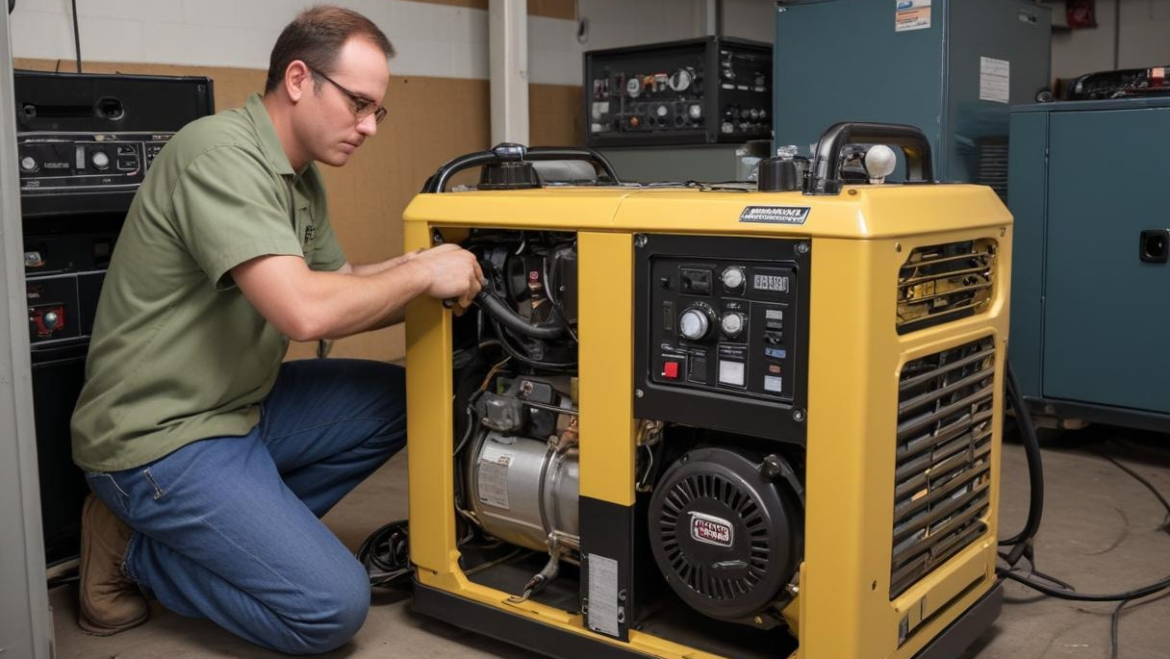A residential backup generator is a huge life-saver during those instances when power outages occur.
It keeps the important appliances in your home powered like your AC, water heater, refrigerator, and sump pumps.
You came to the right place if you’re in the market for a backup generator. Here’s a quick guide on how to choose a residential backup generator for your home.
Determine Your Power Needs
The first step in choosing a residential backup generator is to determine how much power you need. Companies depict a generator’s output in kilowatts (kW), which stands for 1,000 watts. This will factor heavily into your purchase decision.
To determine your power requirements, consider the following:
List Important Appliances
Make a list of all the appliances you want to power during an outage. This could be refrigerators, lights, heating systems, and security/medical equipment.
Check Power Requirements
Look at the labels on each appliance to find out how much power they use, usually listed in watts.
Total The Wattage
Add up the wattage of all the appliances you plan to run simultaneously. This gives you a rough estimate of your power needs.
Consider Starting Wattage
Some appliances, like air conditioners and refrigerators, need more power to start than they do to run. Include these higher starting wattages in your calculations.
Add Safety Margin
To avoid overloading the generator, add 10-20% more to its total wattage. This safety margin ensures that the generator can handle any unexpected power surges.
Follow Wattage Formula
You can follow this simple formula to ensure you choose the right size generator for your needs.
Total Wattage = (Sum of Running Wattage for All Devices) + (Highest Starting Wattage of Any Device)
Here’s how it breaks down:
- Add up the running wattage of all the appliances and devices you plan to use simultaneously.
- Identify the appliance with the highest starting wattage (the extra power it needs to start up) and use that number.
- The total gives you the wattage your generator should supply to meet your power needs.
Types of Generators
When choosing between air-cooled and liquid-cooled generators, several factors should be considered, including the environment in which the generator will operate, the size and power requirements, and the maintenance preferences.
Each type of cooling system offers distinct advantages and drawbacks, which can influence the decision based on specific needs.
Air-Cooled Generators
Air-cooled generators use fans to blow air over the engine to dissipate heat. This cooling method is simpler and generally requires less maintenance.
Air-cooled generators tend to be more compact and are often the preferred choice for smaller residential or light commercial applications. A good example is portable generators.
Pros:
- Simpler design with fewer components, leading to lower initial cost.
- Less maintenance due to fewer moving parts.
- Generally smaller and lighter, they are easier to install and transport.
- Suitable for residential use or light commercial applications.
Cons:
- Less efficient cooling in extremely hot environments or when running for long durations.
- Noise levels may be higher compared to liquid-cooled systems.
- It is not ideal for large generators or those with heavy power demands.
Liquid-Cooled Generators
On the other hand, liquid-cooled generators use a coolant that circulates through the engine to absorb heat. The heated coolant is then passed through a radiator, where a fan cools it down before recirculating.
Residential standby generators use liquid cooling to maintain peak performance even in demanding applications. This boosts their service reliability when used for longer periods.
They also come with an automatic transfer switch to ensure your home stays powered even after the electric utility cuts off the power supply.
Pros:
- More efficient cooling, especially under heavy loads and in hot climates.
- Quieter operation due to more effective heat dissipation.
- Better suited for larger generators and continuous operation.
- Longer lifespan due to better thermal management.
Cons:
- More expensive both in terms of initial cost and maintenance.
- More complex design, leading to the potential for more issues over time.
- Additional components like radiators and coolant reservoirs require more space for installation.
Fuel Options
Residential backup generators rely on a fuel source to operate. Different generators use different fuel sources, so it’s worth checking them out to know which one they use:
- Gasoline: Widely available, easy to store, and commonly used for portable generators.
- Propane (LPG): Clean-burning, has a long shelf life, and can be stored in large tanks.
- Natural Gas: Often connected directly to the home’s natural gas lines, providing an uninterrupted supply.
- Diesel: Known for its efficiency and longer shelf life, it is suitable for larger and more powerful generators.
Each fuel option has its own advantages, and the choice depends on the availability and power needs of your desired generator.
Install Your Residential Backup Generator Today With Danley 911 Home Services Electrical
Need help with finding the right generator for your home? Danley 911 Home Services Electrical has got you covered. With our wide range of Generac-branded generators, you can feel confident that your home will remain powered in case of a power outage.
Our licensed electricians are more than qualified to conduct generator installation, ensuring the safety and peace of mind of your family. To learn more about their services, give them a call at (732) 432-0164.
FAQ About Residential Backup Generator
How much does a residential backup generator cost?
The cost of a residential backup generator depends on the size and output of the unit. Portable generators usually cost around $1,000, while residential standby generators cost upwards of $3,000
Should I get a portable generator or a standby generator?
This will depend on your power requirements. If your only concern is powering one or two appliances, a portable generator will work fine. However, if you need to power your entire home (lights, appliances, water heaters, etc.), a residential standby generator is a better investment.
Do I need to hire a professional to install a residential backup generator?
Yes. It’s always a good idea to hire a professional to install a backup generator to avoid technical problems later on.

